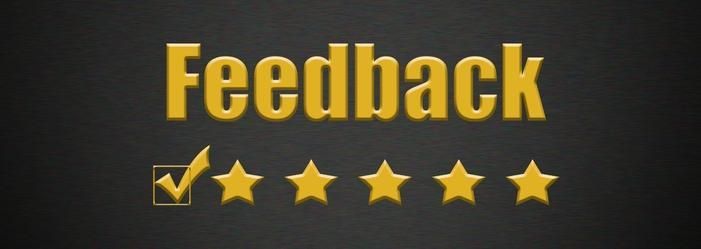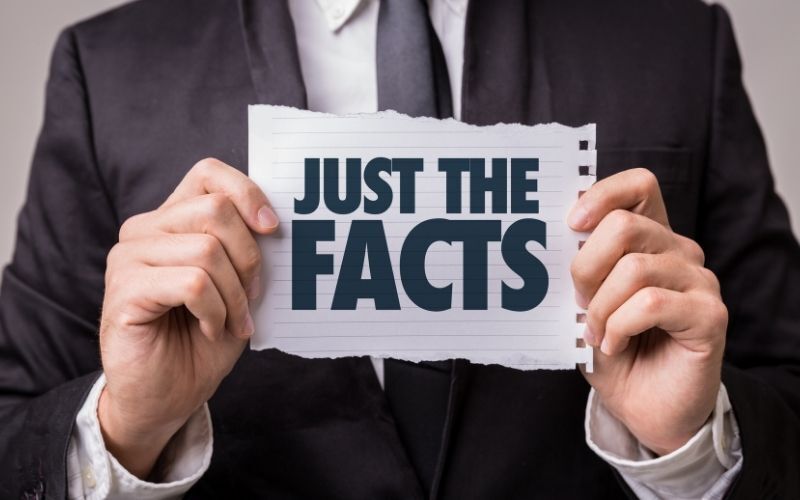Last Updated: March 22, 2024
Do debt relief programs actually work?

Disclaimer: We are not qualified legal or tax professionals and are not giving advice. Always speak with a qualified professional before making any legal or financial decisions.
Debt can often feel like a heavy weight, making it challenging to find your financial footing. In our comprehensive guide, we'll dive into the world of debt relief, exploring effective strategies and options available to those struggling with debt.
From understanding the nuances between debt consolidation and debt relief to exploring the potential impacts on your credit score, we're here to provide you with the knowledge you need to make informed decisions.
Drawing on expert insights, our goal is to empower you to take control of your debt and pave the way towards financial freedom.
Ready to talk? A free consultation with a debt specialist is one click away.
Debt Relief Types
There are many articles on our blog and website that discuss debt relief and take a deeper look into each type. For more information on debt relief types, check out these articles:
The quick version is this:
- Debt Settlement - negotiating with creditors to decrease the amount owed or to even forgive the entire debt
- Debt Consolidation - eliminating debts by taking out a single loan, then repaying the loan
- Credit Counseling - learning how to manage money, set a budget, and repay creditors. This may require a Debt Management Plan
- Bankruptcy - the erasure of most debts through a legal action
Compare Debt Relief Options
Here is an overview comparing key factors between different debt relief methods:
| Debt Settlement | Debt Consolidation | Credit Counseling | Bankruptcy | |
|---|---|---|---|---|
| Total debt reduced | Yes, settle for less | No, pay in full | No, pay in full | Yes, eligible debt discharged |
| Impact on credit | Damage from missed payments | Limited if pay on time | Limited if pay on time | Severe damage, 10 yrs |
| Cost | 15-25% fees | Interest on new loan | Monthly DMP fees | Court and legal fees |
| Time to resolve | 24-48 months | Loan repayment term | 24-48 months | 3-6 months process |
| Collections | May continue until settled | End upon consolidation | End upon enrollment | End upon filing |
| Tax implications | Settled debt could be taxable | None | None | Certain tax debt remains |
Pros and Cons of Debt Relief Options
There are many debt relief options available, each with its own pros and cons. When evaluating the best debt relief options for your situation, be sure to consider all the factors discussed here such as timeline, impact on credit, and cost.
Debt Settlement
Pros:
- Reduce total amount owed by settling for less
- Faster debt resolution with lump-sum settlements
- Avoid bankruptcy impact on credit reports
Cons:
- Credit score usually drops when accounts become delinquent
- Continued collections efforts until accounts settled
- Settled debt may be taxed as income
Debt Consolidation
Pros:
- Simplify multiple payments into one monthly payment
- May qualify for better interest rate to save money
- Allows you to pay off debt faster than minimum payments
Cons:
- Limits access to additional credit during repayment
- May extend timeline for eliminating debt
- Does not reduce amounts owed
Credit Counseling
Pros:
- Receive guidance on budgeting and managing money
- Debt management plan consolidates payments
- Interest rates and fees may be reduced
- Helps avoid more severe options like bankruptcy
Cons:
- May not reduce total amount owed
- Takes discipline to change spending habits
- Debt management plan fees
- Can take 2-4 years to complete
Bankruptcy
Pros:
- Immediate relief from collections calls and lawsuits
- Much of unsecured debt eliminated
- Allows financial fresh start
Cons:
- Damages credit for up to 10 years
- May not discharge certain tax debt
- Legal fees and court costs
- May have to forfeit property
When weighing the pros and cons of different debt relief strategies, also think about which option aligns closest with your financial goals and the debt relief secrets that can lead to success.
Expected Timeframes for Debt Relief
The amount of time it takes to find resolution through debt relief depends on the method used. Learn more from our complete guide to the best debt relief options.
Here are typical timeframes to expect:
- Debt settlement: Because debt settlement involves stopping payments and negotiating with creditors, it can take 2-4 years for debts to be fully resolved. Some accounts may settle more quickly, while others can take longer.
- Debt consolidation: The timeline for debt consolidation matches the length of the consolidation loan. Personal loans often range from 2-7 years. Paying off credit card balances with a consolidation loan can provide faster debt repayment than minimum payments.
- Credit counseling: Credit counseling programs often take 2-4 years to complete. This allows time to repay debts through an organized debt management plan. Programs can be extended if needed based on your financial situation.
- Bankruptcy: Filing for bankruptcy provides the quickest debt relief, often discharging eligible debts within 3-6 months. However, the overall bankruptcy process can last up to 5 years including the reporting period. Your financial situation will need to recover during this time.
Some Candidates for Debt Relief
The best candidate for the first three types of debt relief are people who are:
- Behind on credit card bills or other loan payments or
- Struggling to afford payments
- Have been trying to manage debt but not succeeding
- Thinking about bankruptcy
- Dedicated to NOT adding to account balances
- Willing to make a long term commitment to repaying debt
Tax Consequences
- Debt Settlement - settling a debt for less than the full amount or having the debt written off can be considered income by the IRS and you may end up paying taxes on that amount.
- Debt Consolidation - as long as there is no debt settlement, you should not have a tax consequence.
- Credit Counseling - as long as there is no debt settlement, you should not have a tax consequence.
- Bankruptcy - filing for bankruptcy may mean that the IRS can not collect tax debt from you. HOWEVER, depending on what type of tax debt you owe, the IRS may collect it later.
Credit Score Impacts
- Debt Settlement - because you will stop paying bills during debt settlement, your credit score may take a hit. Once your bills are paid though, your credit score should recover. For more about learning about your credit score, follow this link.
- Debt Consolidation - there should be no credit score impact from consolidation as long as you pay off the loan in a timely manner.
- Credit Counseling - there may be a short term effect on your credit score if you enter into a debt management plan (usually because you close a few accounts) or other form of debt relief.
- Bankruptcy - immediate and long term effect that usually lasts up to ten years.
What Bills Can Be Enrolled
- Debt Settlement - in general, only unsecured bills like credit card debt and medical debt can be enrolled.
- Debt Consolidation - the only limitation is how much of a loan you can qualify for that has a lower interest rate than your existing debt’s interest rates
- Credit Counseling - all debt is considered.
- Bankruptcy - only certain debt can be forgiven. For more information on bankruptcy, follow this link.
Debt Relief Fees
- Debt Settlement - fees are generally charged as a percentage of the enrolled debt.
- Debt Consolidation - no fees for DIY consolidation, except for fees normally charged on loans.
- Credit Counseling - should be free. There may be fees for a debt management plan.
- Bankruptcy - court fees and legal fees can be expensive.
Possibility for Scams
- Debt Settlement - always look for a company with good reviews and accreditation.
- Debt Consolidation - if using a company, always look for a company with good ratings and accreditation.
- Credit Counseling - always look for a company with good ratings and accreditation.
- Bankruptcy - since this is a legal proceeding, there should be less of a chance for scams. Hire a qualified lawyer.
Interest and Penalties
- Debt Settlement - interest and penalties may accumulate while debts are being negotiated
- Debt Consolidation - the interest rate on the loan must be lower than existing loans. Penalties end with payment of existing loans.
- Credit Counseling - interest and penalties continue to accrue
- Bankruptcy - end immediately
Time Invested
- Debt Settlement - 24-48 months
- Debt Consolidation - length of time of get a loan and pay off bills
- Credit Counseling - 24-48 months
- Bankruptcy - 48 months to five years
Long Term Success
All of these methods of debt relief can put you into a much better financial condition IF you learn how to manage your money, set up and stick to a budget, and stay away from what got you into debt in the first place.
Otherwise, you will get yourself into exactly the same situation in the future.
Choosing a Reputable Debt Relief Company
If using a third-party company for debt relief, make sure to vet the provider thoroughly.
Here's what to look for:
- Accreditation: Legitimate companies should have accreditation from organizations like the American Fair Credit Council (AFCC) or the United States Organizations for Bankruptcy Alternatives (USOBA). This ensures they follow ethical business practices.
- Reviews: Check third-party review sites like the Better Business Bureau, Trustpilot, Google, and more. Look for consistently positive reviews over an extended time. Beware of review sites paid for by the company.
- Fees: Ask for a complete fee schedule in writing. Fees should be clearly explained. Avoid companies that charge large upfront fees before providing services.
- Flexibility: Choose a company that offers flexible options should your financial situation change during debt relief. Make sure you can pause or cancel service if needed.
- Transparency: Opt for full transparency on what to expect, including the process, timeline, responsibilities, and more. Clear communication is essential.
FAQs
Conclusion
If you are in debt, there are ways to get out of debt. You can do it yourself or you can find a professional who can help you. The most important outcome from any sort of debt relief should involve learning to manage your money and avoid getting into debt in the first place!
Before deciding if a debt relief program is right for you, make sure to understand the facts, evaluate your options thoroughly, and choose a method that fits your circumstances.vThe key is finding the debt relief option that best fits your financial situation.
Evaluate the pros, cons, timeframes, and costs to make an informed decision. Getting your finances back on track is possible with the right help and dedication to changing old spending habits. Debt relief can provide a fresh start if you're willing to put in the effort to make lasting changes. Don't be afraid to ask for help getting your finances in order.
If you are struggling with overwhelming debt and want to explore your debt relief options, Pacific Debt Relief offers a
free consultation to assess your financial situation. Our debt specialists can provide objective guidance relevant information and support to help find the right debt relief solution.
*Disclaimer: Pacific Debt Relief explicitly states that it is not a credit repair organization, and its program does not aim to improve individuals' credit scores. The information provided here is intended solely for educational purposes, aiding consumers in making informed decisions regarding credit and debt matters. The content does not constitute legal or financial advice. Pacific Debt Relief strongly advises individuals to seek the counsel of qualified professionals before undertaking any legal or financial actions.

✔ Accredited by Better Business Bureau with BBB A+ rating (4.93 rating and 1678 reviews)
✔ US News and World Reports and Bankrate ranked Pacific Debt Relief as one of “The Best Debt Relief Companies of 2024”
✔ 6.9 star rating by BestCompany.com (over 2379 client reviews)
✔ 4.8 star rating by TrustPilot based (over 1613 verified consumer reviews)
✔ ConsumerAffairs.com Accredited (over 544 verified reviews with an average rating of 5 stars)
✔ A Top 10 Rated Compan by TopTenReviews.com , ConsumersAdvocate.com and Top10debtconsolidation.com
✔ 4.6 star rating by Google (229 client reviews)
✔ 100% rating by SuperMoney (9 client reviews)
Reduce Your Credit Card Debt By Up to Half

BBB Reviews | 4.9/5.0 Rating









 Do Not Sell My Personal Information
Do Not Sell My Personal Information